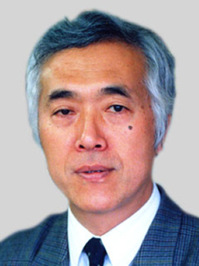|
Hamashita Takeshi
发布时间:2019-10-09 03:08:24
|

Introduction : Hamashita Takeshi is a famous Japanese historian and Sinologist. He is currently Professor of world history at History Department of Sun Yat-sen University and Research Department Head of Toyo Bunko. He worked as a professor at the University of Tokyo, Kyoto University and Ryukoku University. His research areas cover modern and contemporary Chinese social economy, East Asian regional history, Southeast Asian overseas Chinese history, etc. He authors many monographs, and has published Research on China's Modern Economic History--Customs Finance and Treaty Port Market Circle in the Late Qing Dynasty, International Aspects of Modern China, Hong Kong: Network City in Asia, Tribute System and Modern Asia, China, East Asia and the Global Economy: Regional and Historical Perspectives, The Resurgence of East Asia: 500, 150 and 50 Year Perspectives. He enjoys a high reputation in the international academic community. Acceptance Speech: It is my great honor and pleasure to have such a prestigious and memorable award from SASS at the 8th World Forum of China Studies in 2019. In early 1980’s right after China took Open Door policy, I firstly came to China to learn local industry in the coastal areas. Our generation starting China studies in 1960’s in Japan discussed enthusiastically historical record on lower Yangtzi River area. Professor Tanaka Masatoshi田中正俊, our advisor at Tokyo University, chose textbooks from Chinese local gazetteers 方志such as Songjiang松江 and Zixi滋溪 areas and relevant biographies of local gentries缙绅 who devoted to develop local economies. During almost thirty years from 1980’s to 2010’s, I have been learning local China, coastal China, China with Asia and globalizing China one after another and realized historical change of the world along with the development and change of China herself. From global history’s point of view, we might recognize current situation of this world as a period of fundamental change on the relationship between human societies and natural resources, which means the historical circulation between human resources and natural resources including climatic issue has been changing rapidly. Consequently, globalization introduced stronger influence and consciousness of natural resources onto human societies. So it is important for us to create new level of global knowledge and identity on the cyclic relationship between human resources and natural resources. Entering into the post-industrial age, new global identity has been emerging with questions to human societies how to create a new balance and circulation between human resources and natural resources. Academically speaking, in order to cope with this fundamental change, we need to create worldwide knowledge networks by crossing natural sciences, social sciences and humanities together. Thus, we will transfer this global knowledge network over our next generations for further balanced global circulation between human resources and natural resources.
|
